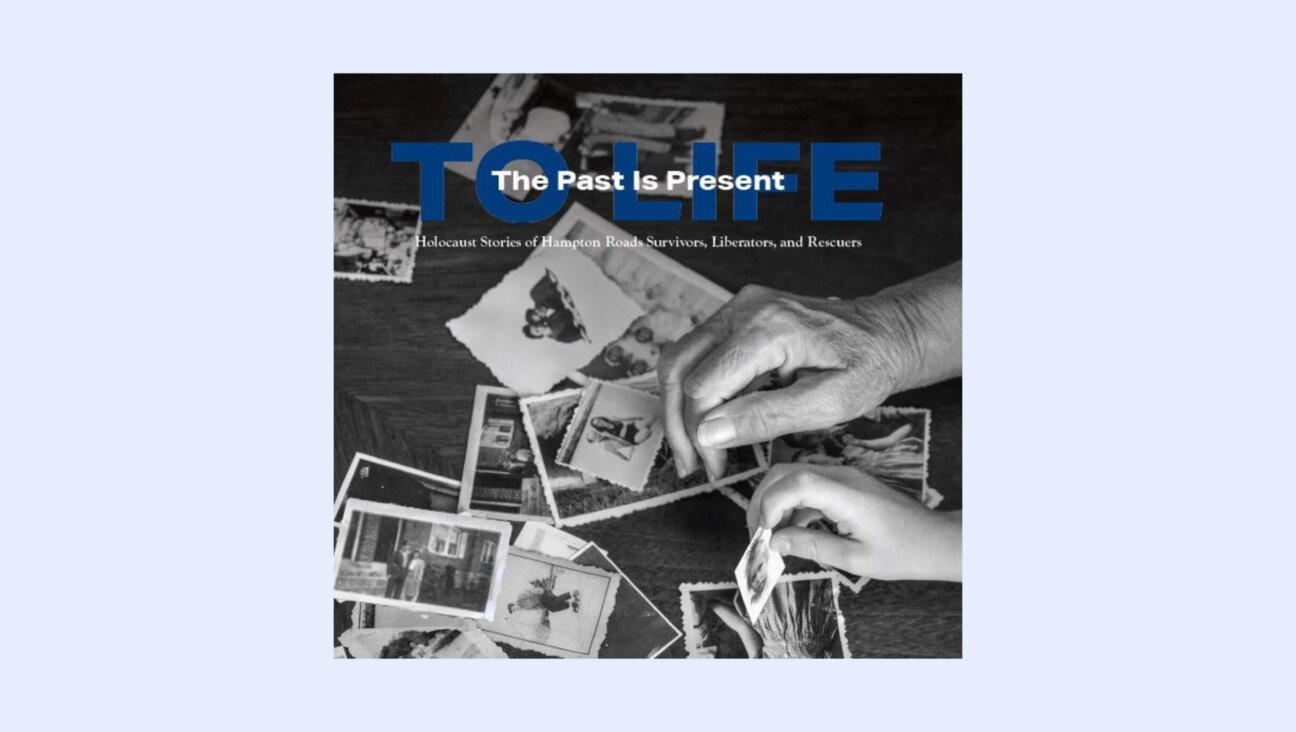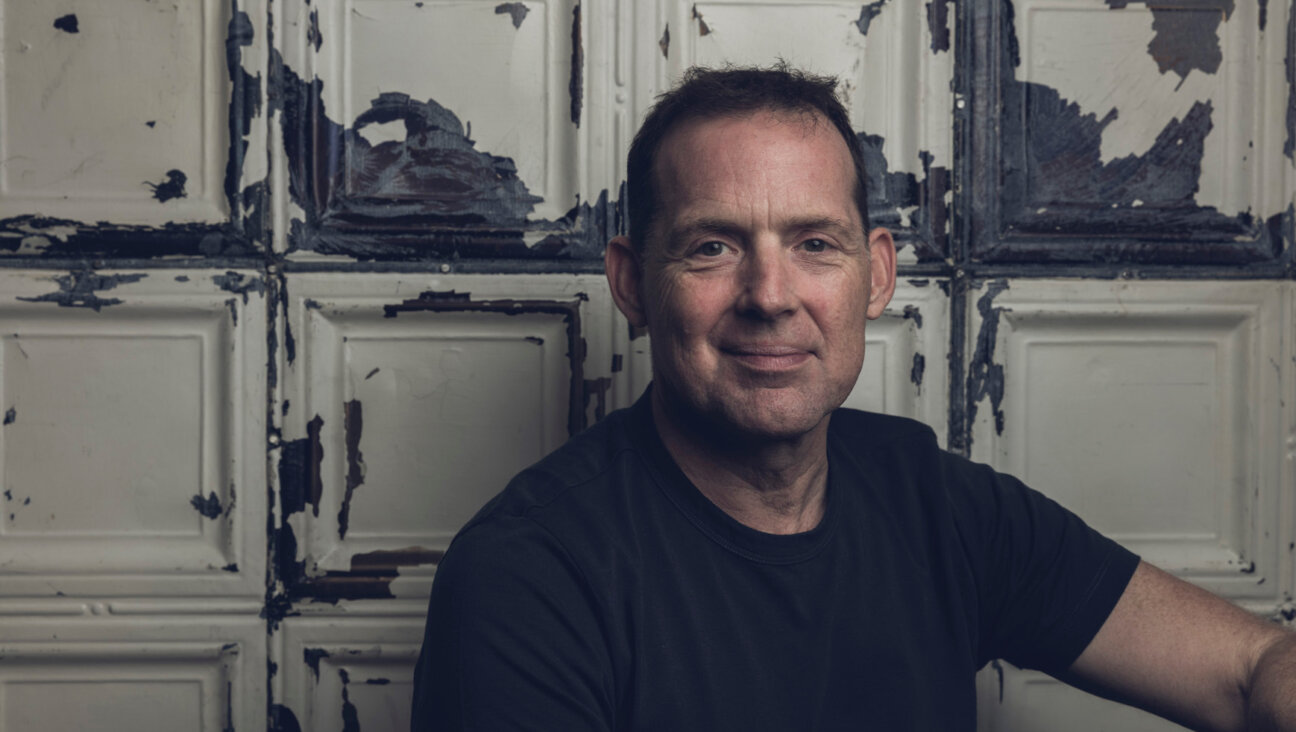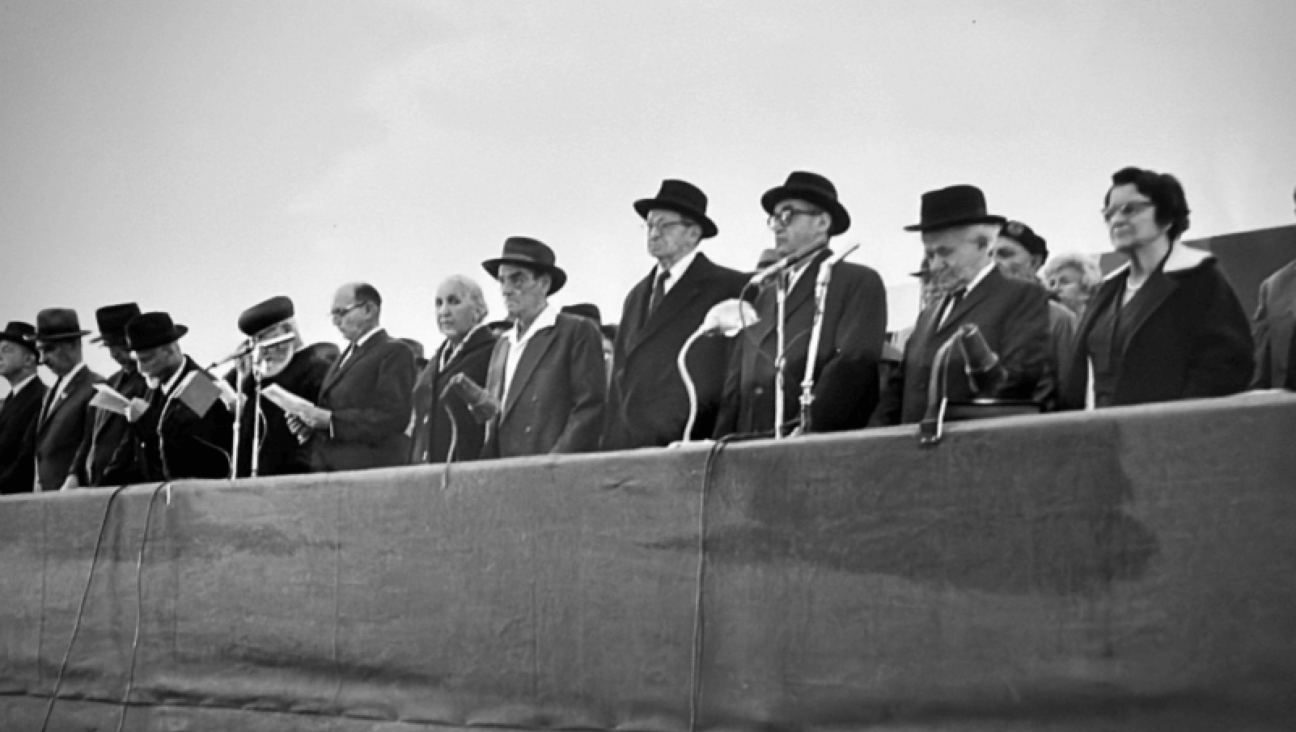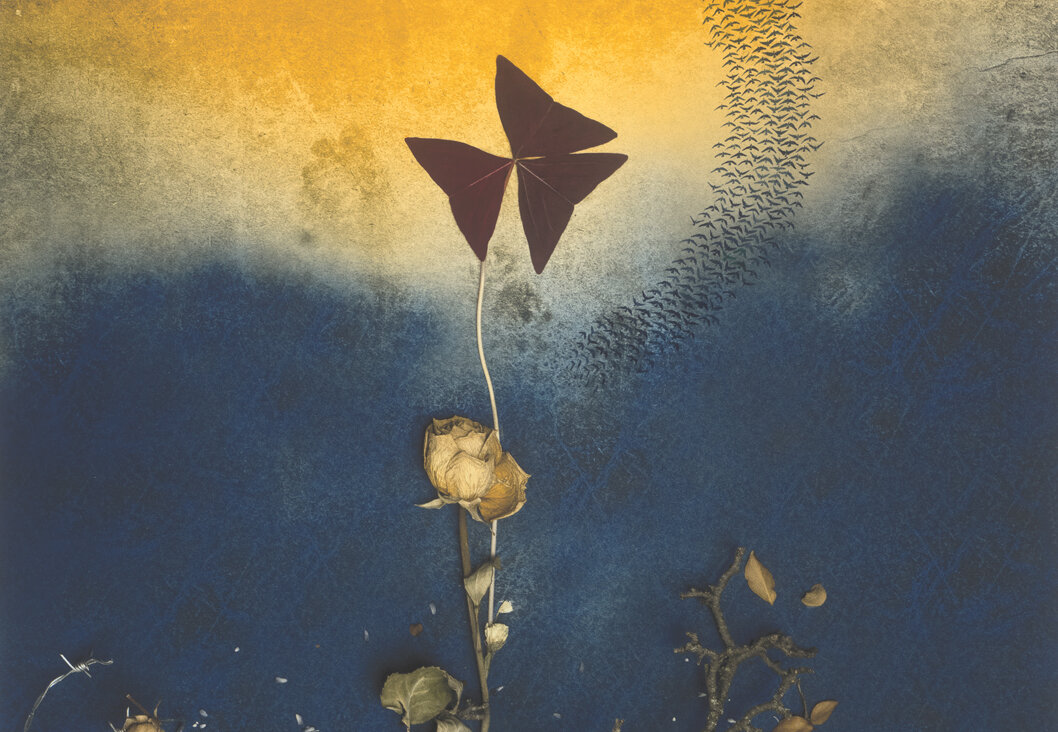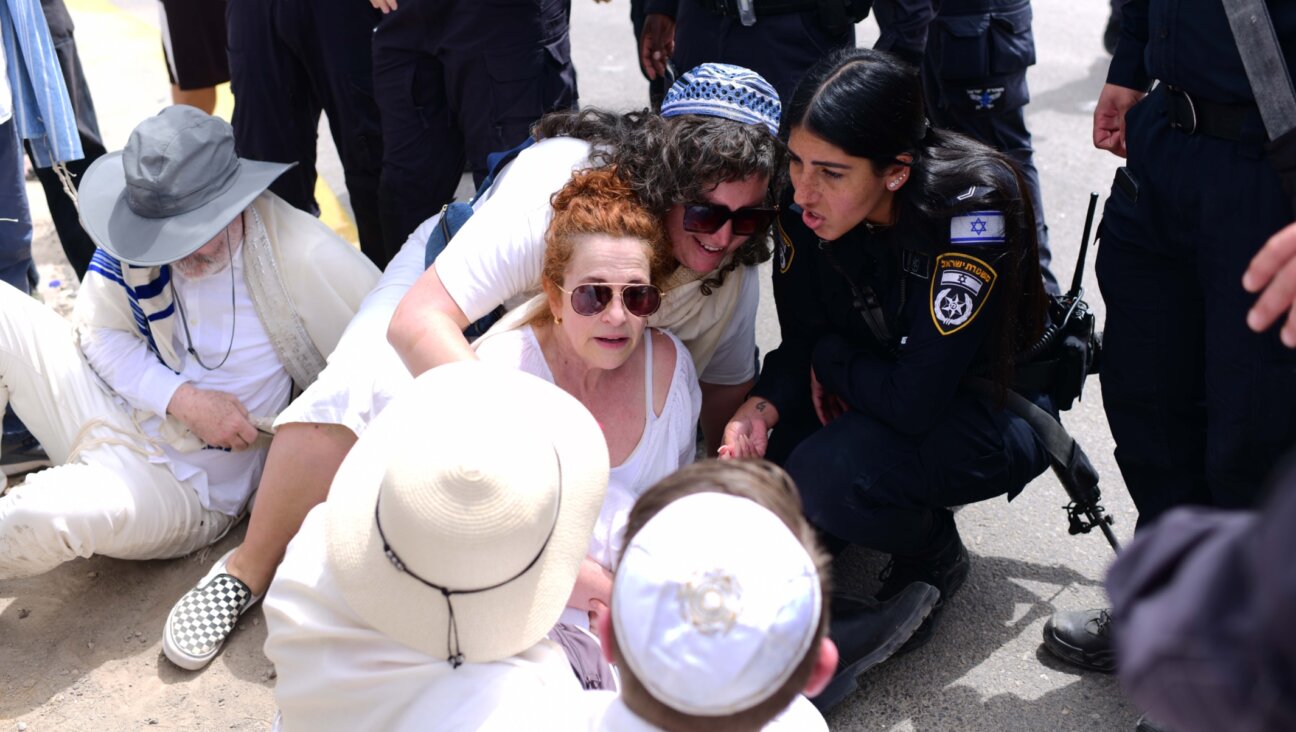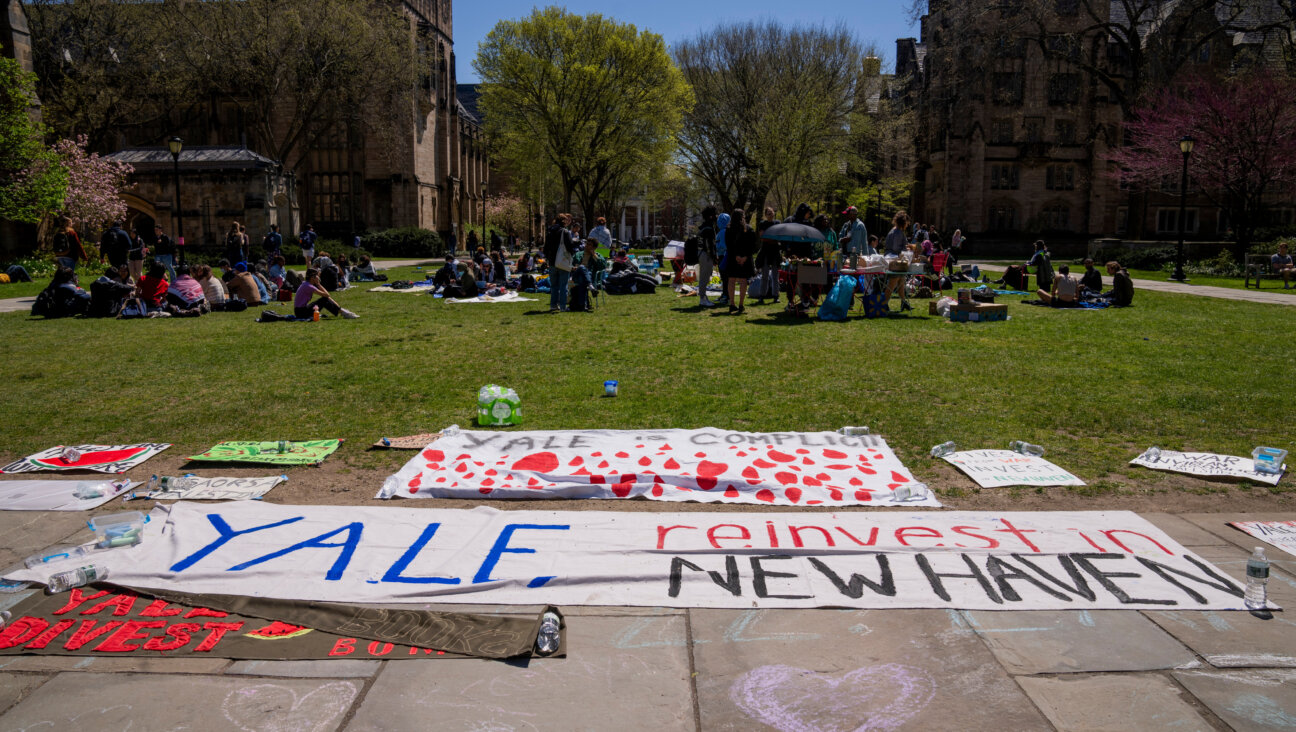Mindy Weisel spent her life looking for ‘light.’ Now, she’s found it

“Memory, Like Lace, Is Full of Holes” from the eponymous series by Mindy Weisel. Image by Courtesy of Mindy Weisel
Mindy Weisel wanted to know if I’d ever been to Kripalu.
I have not. But Weisel, an abstract artist based in Jerusalem, is a longtime devotee of the Massachusetts yoga retreat. She rushed to our virtual interview after finishing a Zoom class with her favorite teacher — her exercise method of choice ever since the coronavirus pandemic scuttled walks and water aerobics. She related all this apologetically, confessing that she hadn’t had time to do her makeup properly.
The explanation was completely unnecessary. Seated before one of her own massive paintings, wearing hoop earrings and a red sweater with the collar jauntily popped, Weisel looked so consummately interview-ready it was easy to forget she was confined to her home, waiting out yet another Israeli lockdown.
But it was also characteristic of an artist who has spent much of her personal and professional life exploring what it means to seek out beauty in the wake of tragedy.
The daughter of two Holocaust survivors, Weisel, 74, was born in the Bergen-Belsen displaced persons camp and grew up in Brooklyn, where her parents owned a bakery. She married at 18 and spent over a decade studying painting before making her 1982 debut at the Jewish Museum with a series of brooding abstract paintings inspired by her father’s tattoo from Auschwitz. Since then, Weisel, who describes her work as a decades-long “search for light,” has emerged as a voice for second-generation Holocaust survivors who grew up in the shadow of their parents’ trauma.

Weisel describes her work as a long “search for light.” Image by Courtesy of Mindy Weisel
The stress of living through another global crisis has made it “hard to focus,” Weisel said, before rattling off several significant things she’s accomplished in the past several months. She created a series of paintings and collages based on her mother’s lace work. She finished a memoir 11 years in the making, “After: The Obligation of Beauty.” And she binge-watched “Bridgerton.”
I spoke with Weisel about making art under lockdown, her criteria for a new studio, and the superfluity of herons in literature. (You’ll see.) Here’s what she had to say.
How her childhood prepared her for the pandemic: Because my parents were both Holocaust survivors, I’ve always felt like the day was very important. But now I feel it in a different way — I feel the need to really enjoy the day. I do more cooking, like a lot of people. I do more meditating.
Where she eats lunch I have a really charming Israeli patio at my studio. In memory of my brother-in-law, who passed from COVID, I just planted three orange trees there. My husband brought me lunch today, and we ate outside on the patio. It’s the only place we feel safe.
What the ‘obligation of beauty’ really means: My mother watched all her sisters and her parents killed in Auschwitz. Then she and my father ended up opening a bakery in New York. The bakery business is very hard: On Thanksgiving, everybody was with their families, but my parents were baking the pies. And here I am, the first daughter to this elegant, beautiful, Hungarian woman. I had this obligation to be everything to them. To create beauty, to perform beauty, to try and make life beautiful.

“She Loved Blue,” from the series “Memory, Like Lace, Is Full of Holes.” Image by Courtesy of Mindy Weisel
On the questions her memoir asks: The book is about how, with such a tragic background, and having to be everything to my parents, I got my positive outlook. You know, you couldn’t cry. Holocaust survivors’ children rarely cry, because if you start to cry it’s like ‘What have you got to cry about? You’re not in Auschwitz.’ So the bar for living becomes very high.
How she confronts a blank canvas: I don’t start painting, I start writing on my canvas. I write and I write and I write until I’m emptied of words. Then I start making marks, one mark responds to another. You get to a point where you hate the painting, but you love when you get to that point because then you have to make it better. The worst thing that could happen is you fall in love with your painting very early — because then where do you go with it?
On early support from another famous artist with a similar name: In 1979, I became obsessed with my father’s number from Auschwitz, and I did an entire series of paintings. Here I was 30 years old, wanting to enter the art world. My cousin is Elie Wiesel, so I called him and said, “I’m doing this work with my father’s number, do you think I’m desecrating the Holocaust by making art out of it?” He said, “It’s time, just go for it.”
What she needs in a studio: You need space, you need to feel at home. I’m kind of oblivious to weather and light, because my paintings come from inside myself. But of course I have some light — I’m not in a dungeon.

“Faded Memories,” from the series “Memory, Like Lace, Is Full Of Holes.” Image by Courtesy of Mindy Weisel
On the books that keep her company I have an amazing art book library that took about 50 years to accumulate. I started when I was 16, with little teeny books on Matisse and Picasso I saw in Greenwich Village. My first real art book was on Chaïm Soutine. Now, I’ll take an art book out of my library and see that I underlined the whole thing. I’ll realize “Oh my God, I really read this.”
How she found her signature shade: When my mother came to America, her aunt gave her a cobalt blue sweater set, and from then on my mother wore that color all the time.
When I was about 35, I started to mix these blue paints. I called my mother and said, “You know that picture where you’re in a blue dress, can you send it to me?” Then I get this picture, and I realized the blue I had mixed together was that blue. It wasn’t blue with purple, it wasn’t blue with red. And that stayed. There’s a lot of cobalt blue in all my work.
My mother was a hard-working immigrant. But she loved roses and fragrances, beautiful cotton and beautiful down quilts. I have more linens than any person in their right mind should have, because she left them to me. And she spoiled me for life! She used to say “Mindele, the bigger the ‘ouch’ when you’re paying for something, the more you’re gonna love it.”
What she doesn’t want to read: I love memoir, but I don’t get into a lot of fiction. I get very agitated with a book that opens by describing that there’s a bird in the sky and it’s a clear day. Everyone has a heron, in every poem there’s a heron. I don’t want to hear about a heron! Tell me about how you feel.
Irene Katz Connelly is a staff writer at the Forward. You can contact her at [email protected]. Follow her on Twitter at @katz_conn.

I hope you appreciated this article. Before you go, I’d like to ask you to please support the Forward’s award-winning journalism this Passover.
In this age of misinformation, our work is needed like never before. We report on the news that matters most to American Jews, driven by truth, not ideology.
At a time when newsrooms are closing or cutting back, the Forward has removed its paywall. That means for the first time in our 126-year history, Forward journalism is free to everyone, everywhere. With an ongoing war, rising antisemitism, and a flood of disinformation that may affect the upcoming election, we believe that free and open access to Jewish journalism is imperative.
Readers like you make it all possible. Right now, we’re in the middle of our Passover Pledge Drive and we still need 300 people to step up and make a gift to sustain our trustworthy, independent journalism.
Make a gift of any size and become a Forward member today. You’ll support our mission to tell the American Jewish story fully and fairly.
— Rachel Fishman Feddersen, Publisher and CEO
Join our mission to tell the Jewish story fully and fairly.
Only 300 more gifts needed by April 30








